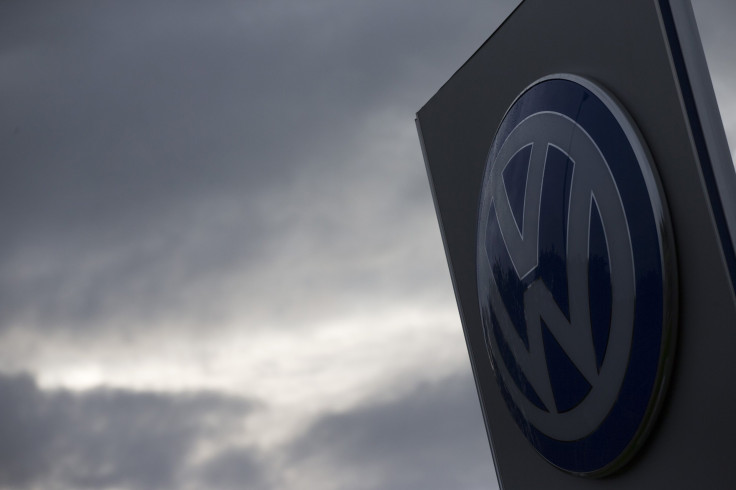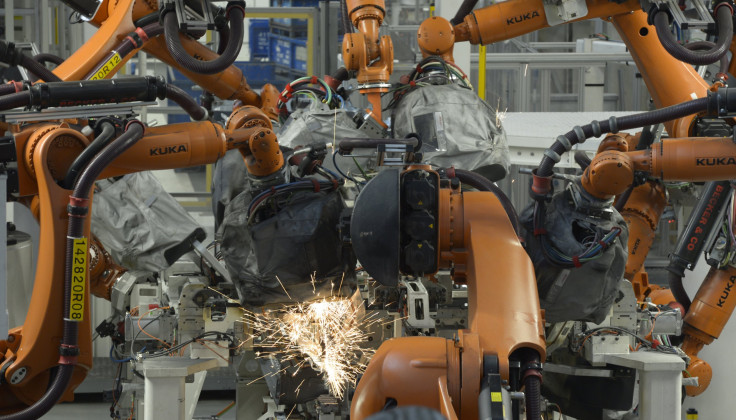Does EPA’s Response To Volkswagen's Emissions Cheating Go Far Enough?

Auto regulators are now on the offensive after being deceived by Volkswagen for years. They announced a response Friday to the company’s stunning admission that it systematically cheated on emissions tests from 2009 to 2015. In a letter to automakers, the U.S. Environmental Protection Agency said it will bolster testing procedures to detect so-called defeat devices like the ones Volkswagen used to shut down pollution control systems outside of testing conditions.
Jesse Prentice-Dunn, a policy analyst at the Sierra Club, applauds the move. But he says “long-term” fixes are still needed. “The testing regime needs to be revamped.”
Critics have long said as much. Under the current testing system, automakers in the United States conduct their own examinations and report the data to federal officials. The EPA, meanwhile, conducts spot checks, but its resources are stretched thin.
Dan Becker is the director of the safe climate campaign at the Center for Auto Safety. For companies to respect emissions standards, he says, officials need to remove the tests from private hands and transfer them to labs with federal supervision. “Right now, you’ve got the foxes in control of the chicken coop, and that’s never going to be a good show.”
In an ideal world, Becker says, automakers would simply follow the law. But in the last few decades, companies have shown a remarkable penchant for gaming the standards, and the current structure of the testing system makes it exceedingly easy to do so.
“If these companies were being honest, we wouldn’t need an elaborate system to make sure they don’t cheat,” he said. “But they’ve proven that they do cheat.” Not just Volkswagen -- but “virtually every major automaker,” he asserted.
A History Of Gaming The System
It started in the 1970s, just after the EPA was created and began to regulate auto emissions under the Clean Air Act. Volkswagen, in fact, was among the first to equip its cars with defeat devices to override emissions control systems. In 1973, it confessed to installing them on 25,000 cars. The following year, Chrysler was forced to recall more than 800,000 cars after it was found to have installed a similar device in radiators.
The 1990s saw a couple of major scandals. In 1995, General Motors settled with the Justice Department and the EPA for $45 million, acknowledging it installed a computer chip in 500,000 Cadillacs that tripled the amount of carbon monoxide output when the cars’ heating and cooling systems were running. Three years later, Caterpillar, Mack Trucks and Volvo Trucks reached a similar settlement, worth $1 billion, for equipping trucks with defeat devices.

Kia and Hyundai followed suit more recently. Last November, the South Korean corporations copped to overstating fuel economy standards on 1.2 million cars from 2010 and 2012, settling with the Justice Department and the EPA for $300 million.
A representative for the Alliance of Automobile Manufacturers, a trade group that represents automakers operating in the United States, declined to comment.
What Is To Be Done?
The Sierra Club’s Prentice-Dunn says one path to reform could simply be to increase the number of spot checks. Indeed, Christopher Grundler, director of the EPA’s Office of Transportation and Air Quality, recently told the Associated Press that the agency may soon do this.
Grundler was less forthcoming about the EPA’s plans to enhance detection of defeat devices -- the subject of Friday’s letter to automakers. On a call with reporters, he wouldn’t say what changes the agency is enacting to audit lab results submitted by car companies.
“They don’t need to know,” he said, of the automakers. “They only need to know that we will be keeping their cars a little bit longer, and we’re going to driving them more.”
Becker says more oversight is a good step, but regulators need to go further by eliminating their reliance on companies’ test data altogether.
“This is an industry that has proven it’s not trustworthy,” said Becker. “The EPA shouldn’t trust them when they say, ‘our vehicles meet your standards, everything’s just peachy keen.’ The government needs to set up a better testing system and not rely on the auto companies’ assertions.”
He’s not sure exactly how that would look -- whether it would be in-house or conducted at independent labs with federal supervision -- either way, he says, it would need to be firmly outside the control of companies. Taxpayers, in theory, could cover a portion of the cost, but companies should be forced to foot most of the bill.
Congressional Republicans, who have made frequent targets of the EPA, would likely oppose such a plan. Since 2010, the agency has seen its budget decline by a fifth, or about $2 billion. Earlier this month, 20 Republican members of Congress filed articles of impeachment against Gina McCarthy, head of the agency.
Luke Tonachel, director of clean vehicles and fuels at the Natural Resources Defense Council, says all this makes it harder for the agency to do its job. “If the EPA’s resources are constantly under attack, it’s only gonna be harder for them go out and catch the cheaters.”
© Copyright IBTimes 2025. All rights reserved.






















